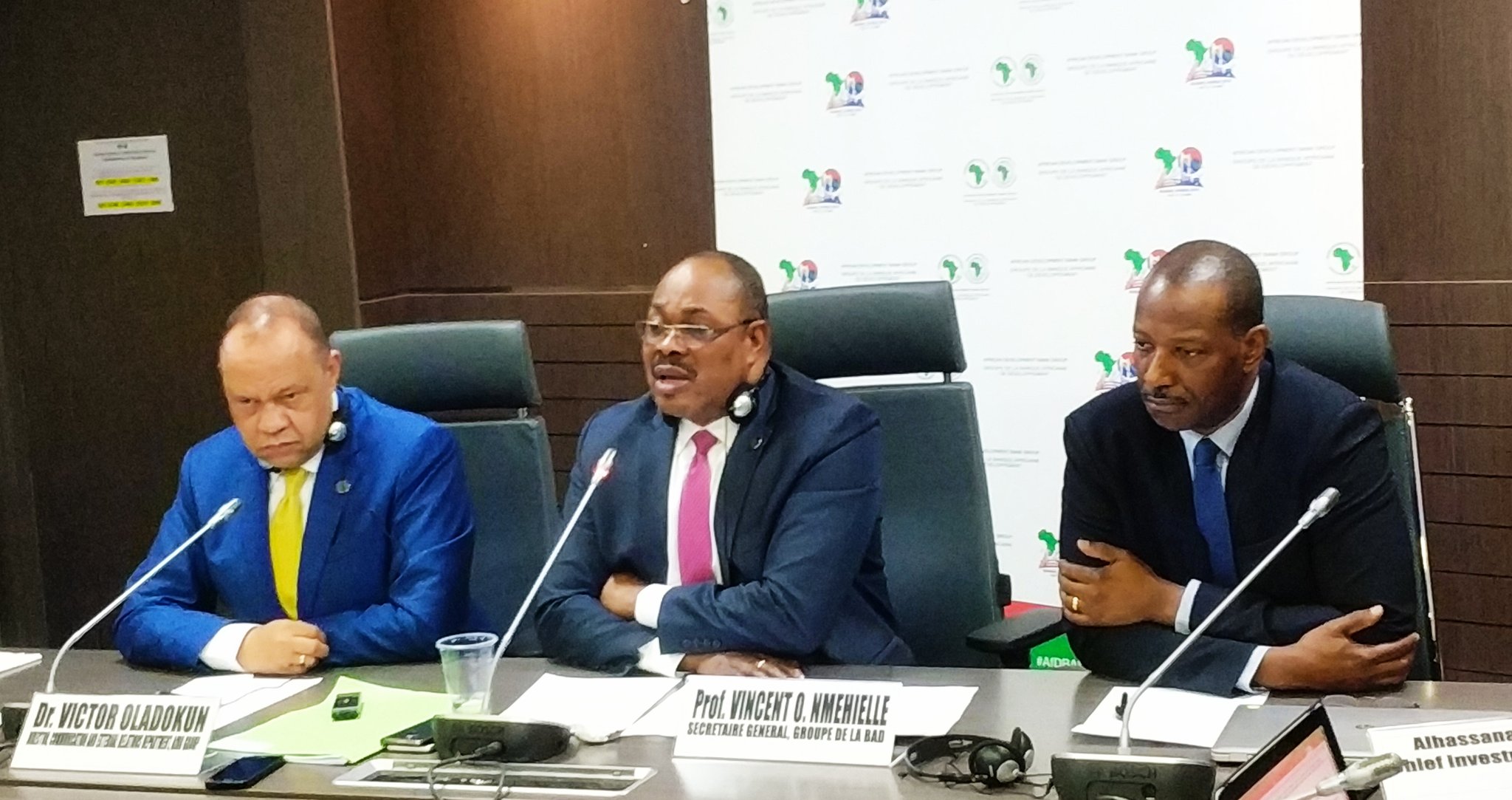|
Getting your Trinity Audio player ready...
|
By Baboloki Semele
The African Development Bank yesterday engaged the media ahead of its annual meetings to be held in Accra, Ghana from 23 to 27 May. At the annual meetings, the bank is set to push for climate resilience and just energy transition as well as launch its African Economic Outlook (AEO).
During the virtual press conference, AFDB secretary-general, Prof. Vincent Nmehielle, said the theme of the annual meeting is: ‘Achieving climate resilience and a just energy transition for Africa.’ He said the theme of the meeting was chosen in line with the most pressing social issues, adding that the African Development Fund (ADF) will also be marking its 50th anniversary during the event.
Answering a question on the bank’s role in enhancing youth participation in green projects, the Pr. Kevin Urama, Acting Chief Economist and Vice President for Governance and Knowledge Management said the bank is doubling the fund available for climate finance in the next five years, which will be a $25bn commitment from the $13bn it has spent over the last five years.
He noted that the bank is doing quite a lot in terms of a green economy for all, alluding to a few projects geared at facilitating youth take over, and ownership of a green African climate, such projects as Affirmative Finance Action for Women in Africa, which leverages the African Development Bank’s financial instruments and has two innovative solutions to drastically transform the banking and financial landscape in Africa and to create incentives for lending to women in business.
He said the bank came up with these projects upon the background that African women and youth are the engines for innovation and creating jobs for youth, which is at the center of African Development Bank’s investment. Prof Urama highlighted that the green economy cut across all sectors such as agriculture, digitization, and infrastructure development, hence the bank developed strategies for youth to thrive in the development of Africa.
He pointed this publication to the agri-preneur programme, which serves as a platform for aggregating agri-preneurs across Africa and escalating the impact of their activities.
The initiative comes as an answer to the daunting challenge of youth unemployment in Africa. Africa has the world’s youngest population with about 60% of the population under 35 years old.
Today, the majority of youth in Africa do not have stable economic opportunities. Research indicates that there are 420 million youth aged 15-35 in Africa. Of those who are not students, one-third are unemployed and discouraged, another third are vulnerably employed, and only one in six is in wage employment.
On the other hand, the average age of farmers in Africa is alarmingly high (60 years) for a continent hoping to feed itself and eradicate malnutrition by 2025. In the agriculture sector, lack of access to land, finance, markets, technologies, and practical skills are barriers to youth participation.
In addition, there is a perception among the youth of farming as an unattractive career path, which is characterized by hard labor, long hours and poor remuneration and scant social recognition. Urama points that there are existing opportunities to empower the youth into each stage of the agriculture value chain as “agripreneurs,” by harnessing new skills, technologies and approaches.
About the Annual African Development Bank Meetings
Ghana will host the African Development Bank Group’s 2022 Annual Meetings from 23-27 May in its capital, Accra. This year’s meetings mark a return to in-person sessions following virtual meetings over the last two years. They will be held in a hybrid format with participants present in Accra and online. The physical sessions, including statutory meetings of governors of the Bank and knowledge events, will take place at the Accra International Conference Centre. The theme for the 2022 meetings is Achieving Climate Resilience and a Just Energy Transition for Africa. The meetings will offer Bank governors a forum to share the climate change and energy transition challenges that their countries face. They also present an opportunity to showcase policy responses to tackle these challenges. The governors, who represent the institution’s 54 African and 27 non-regional member countries, will hold a high-level dialogue with African Development Bank President Akinwumi A. Adesina and his senior management team.
About the Bank
The African Development Bank (AfDB) Group is a regional multilateral development finance institution established to contribute to the economic development and social progress of African countries that are the institution’s Regional Member Countries (RMCs). The AfDB was founded following an agreement signed by member states on August 14, 1963, in Khartoum, Sudan, which became effective on September 10, 1964. The AfDB comprises three entities: the African Development Bank (ADB), the African Development Fund (ADF) and the Nigeria Trust Fund (NTF). As the premier development finance institution on the continent, the AfDB’s mission is to help reduce poverty, improve living conditions for Africans and mobilize resources for the continent’s economic and social development. The AfDB headquarters is officially in Abidjan, Côte d’Ivoire.






